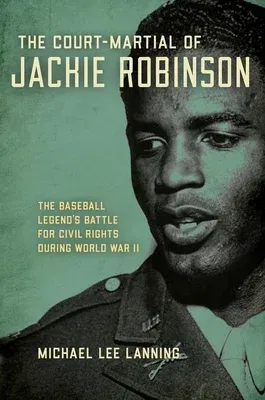Michael Lee Lanning
(Author)The Court-Martial of Jackie Robinson: The Baseball Legend's Battle for Civil Rights During World War IIHardcover, 21 February 2020

Qty
1
Turbo
Ships in 2 - 3 days
In Stock
Free Delivery
Cash on Delivery
15 Days
Free Returns
Secure Checkout

Print Length
296 pages
Language
English
Publisher
Stackpole Books
Date Published
21 Feb 2020
ISBN-10
0811738647
ISBN-13
9780811738644
Description
Product Details
Author:
Book Format:
Hardcover
Country of Origin:
US
Date Published:
21 February 2020
Dimensions:
22.86 x
16 x
2.79 cm
ISBN-10:
0811738647
ISBN-13:
9780811738644
Language:
English
Pages:
296
Publisher:
Weight:
544.31 gm